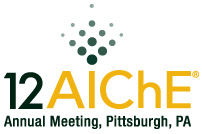

Polyhydroxyalkanoates (PHAs) are a family of polyesters synthesized by many kinds of bacteria as intracellular carbon and energy storage compounds. PHAs have similar physical properties as currently used plastics,, but they can be degraded completely into water and carbon dioxide by natural microorganisms in a short period. Enzymatic digestion by pancreatin has been developed as an effective and cost efficient method to recover polydroxybutyrate (PHB) from culture of Bukerholdria cepacia. Pretreatment methods including heat shock, surfactant digestion, and oxidizing agent digestion were screened, and heat pretreatment was selected for high efficiency and no damage to product. Transmission electron microscopy showed the efficient cell lysis by pancreatin. Enzymatic recovery conditions were chosen to be 50 °C. When the pancreatin/biomass is 0.02 and higher, PHB recovery and purity reached up to 93.5% and 91.2% respectively. Successful protein removal was proved by both Bradford assay and nuclear magnetic resonance analysis. No significant reduction in molecular weight proved negligible polymer degradation.
Preview Presentation
Presenter(s)
Once the content has been viewed and you have attested to it, you will be able to download and print a certificate for PDH credits.
If you have already viewed this content,
please click here
to login.
